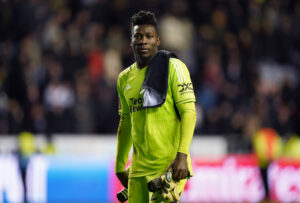After finishing last in their group at UEFA Euro 2016, Sweden shocked everyone by reaching the quarter-finals at the 2018 FIFA World Cup. Some people say this success is correlated with Zlatan Ibrahimovic’s retirement, claiming that his departure enabled Sweden to play as one unit. This analysis is quite problematic. Blaming Ibrahimovic for Sweden’s struggles is not only incorrect, but it’s also very unfair to the talismanic striker. It has more to do with how Sweden was managed. Sweden improved despite Zlatan’s retirement, not because of it.
Sweden Have Improved Despite Zlatan Ibrahimovic’s Retirement, Not Because of It
Erik Hamrén’s Role
Erik Hamrén was Sweden’s manager between 2009 and 2016 before his 2018-2020 stint with Iceland. His results in major tournaments left a great deal to be desired, even by Swedish standards, failing to take Blågult to a single World Cup and being eliminated in the group stage of two consecutive Euros.
He abandoned Sweden’s 4-4-2-tradition for a more offensive approach. Primarily incorporating a 4-3-1-2 formation with Ibrahimovic leading the charge. This play-style is a double-edged sword. It made Sweden lose 4-1 to the Netherlands of Euro 2012 qualifying, but also enabled a spectacular comeback against Germany that ended 4-4. The rare impressive results aside, his tactics made Sweden inconsistent. It’s no coincidence Blågult suffered their lowest ever FIFA ranking under Hamrén.
A Semi-Generational Shift
Many experienced Swedish players quit after the Euro 2016 fiasco. Most notably Kim Källström, Andreas Isaksson and Zlatan Ibrahimovic, of course. This paved the way for other players to get a chance with the national team, a lot of whom played a big part in Sweden’s 2015 U21 Euro triumph.
Also, Janne Andersson’s reign as manager began. He reinstated the 4-4-2 as the norm and utilised the formation to its limit given the available squad. Andersson put a greater focus on team cohesion and discipline, playing to their strengths. There is little doubt that he would be able to incorporate Ibrahimovic into his cohesive team, too.
2018 FIFA World Cup Qualification
The results were instant, starting the 2018 World Cup qualifying with a 1-1 draw against the Netherlands, albeit a struggling Dutch side that failed to qualify for Euro 2016. This was followed by two routine wins against Luxembourg and Bulgaria.
Playing against France in Paris was the next major obstacle. Sweden shockingly obtained the lead through an Emil Forsberg free-kick, but Le Bleus responded quickly and won 2-1 despite a good Blågult performance. Sweden subsequently destroyed Belarus 4-0. They had the chance to extract revenge against France in the next match.
Olivier Giroud opened the scoring with a remarkable volley. Jimmy Durmaz equalised right on the stroke of halftime. This deadlock seemed unbreakable. However, a Hugo Lloris howler in the dying seconds enabled Ola Toivonen to make it 2-1 with a tremendous strike from the halfway line. Blågult then won 4-0 and 8-0 against Belarus and Luxembourg respectively, meaning Holland needed to win by seven goals to have a chance. The Dutch won, but only 2-0. Sweden had secured a play-off tie with Italy. A play-off tie Blågult won against all odds.
Hate the Tactics, Not the Zlatan Ibrahimovic’s Impact
This success persisted at the 2018 World Cup where they made it all he quarter-finals. Their Nations League campaign has been far from ideal, but it’s a painfully competitive group. Zlatan Ibrahimovic could also have taken part in this rise. He isn’t stupid and would’ve been able to fit in Janne Andersson’s tactics just fine. The striker was a victim of Hamrén’s tactics. Nothing more.
Main Photo






